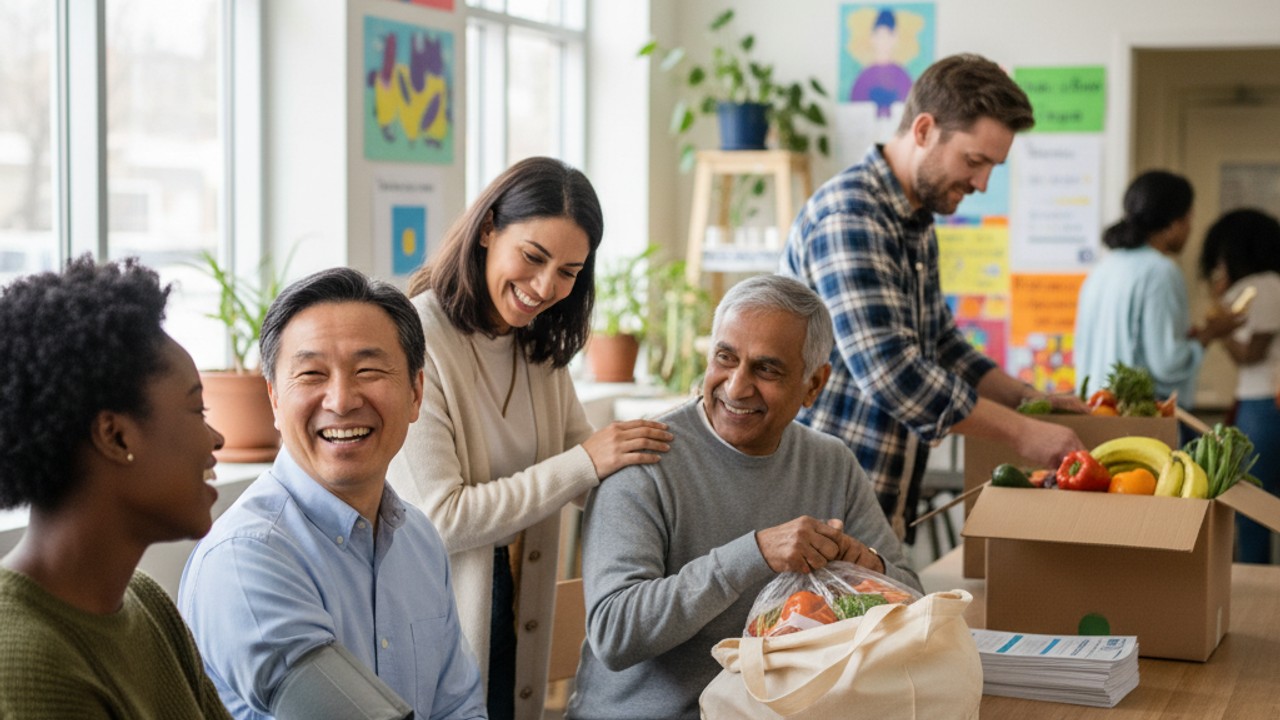On a crisp spring morning in a small neighborhood nestled within a bustling city, a group of volunteers gather at the local community center. They prepare not just food or supplies, but hope—hope for healing and equitable health access in their community. This scene, replicated in countless neighborhoods around the world, exemplifies the transformative power of volunteerism and local impact. It is here that the synergy between heart healing and health equity takes shape.
The Power of Volunteerism in Local Communities
Volunteerism is more than just an act of kindness; it is a vital force driving social change and neighborhood support. According to the Corporation for National and Community Service (CNCS), nearly 30% of Americans volunteer annually, contributing over 6.9 billion hours of service in 2022 alone (CNCS Volunteerism Statistics). These efforts often focus on supporting vulnerable populations, addressing urgent health disparities, and fostering resilience within neighborhoods.
Local impact initiatives build stronger, more connected communities. When volunteers rally around causes like heart healing and health equity, they bridge gaps in access and care. The American Heart Association highlights that heart disease remains the leading cause of death in the United States, disproportionately affecting marginalized communities due to socioeconomic disparities (AHA Health Equity Report 2023). Volunteers are pivotal in raising awareness, providing screenings, and supporting education to combat these inequities.
Healing Hearts: More Than a Medical Journey
Heart healing transcends the physical. It encompasses emotional, psychological, and social dimensions that influence cardiovascular health. Non-profits such as The Mended Hearts focus on peer-to-peer mentoring for people living with heart disease, offering emotional support that accelerates recovery and improves quality of life (Mended Hearts). Their work reminds us that healing requires community and connection.
Another inspiring example is Healthy Hearts Project, which addresses disparities by providing free heart health screenings and education directly within underserved neighborhoods (Healthy Hearts Project). This localized approach ensures that critical health resources reach those often overlooked by traditional healthcare systems.
Health Equity: A Call to Action
Health equity means that everyone has a fair and just opportunity to be as healthy as possible. Yet, the recent National Healthcare Quality and Disparities Report 2023 from the Agency for Healthcare Research and Quality (AHRQ) highlights persistent gaps in care and outcomes among racial, ethnic, and socioeconomic groups (AHRQ NHQDR 2023).
Efforts to close these gaps must be rooted in community engagement. Organizations like Neighborhood Health, which operates health centers focused on comprehensive primary care in underserved areas, exemplify how neighborhood support can drive meaningful change (Neighborhood Health). Their model integrates cultural competency and social services, ensuring holistic care that addresses social determinants of health.
How You Can Make a Difference
There is an urgent need to support and expand volunteer-driven initiatives that promote heart healing and health equity within our neighborhoods. Here are ways to get involved:
- Join local health-focused volunteer groups to assist with screenings, education, and support services.
- Support non-profits working in heart health and health equity through donations or advocacy.
- Advocate for policies that increase access to quality healthcare in underserved communities.
- Spread awareness about social determinants of health and their impact on heart disease.
The health of our hearts is deeply connected to the health of our communities. By fostering volunteerism and neighborhood support, we can help heal wounds that go beyond the physical. Stories of recovery, resilience, and equity are being written every day—will you turn the page with us?




